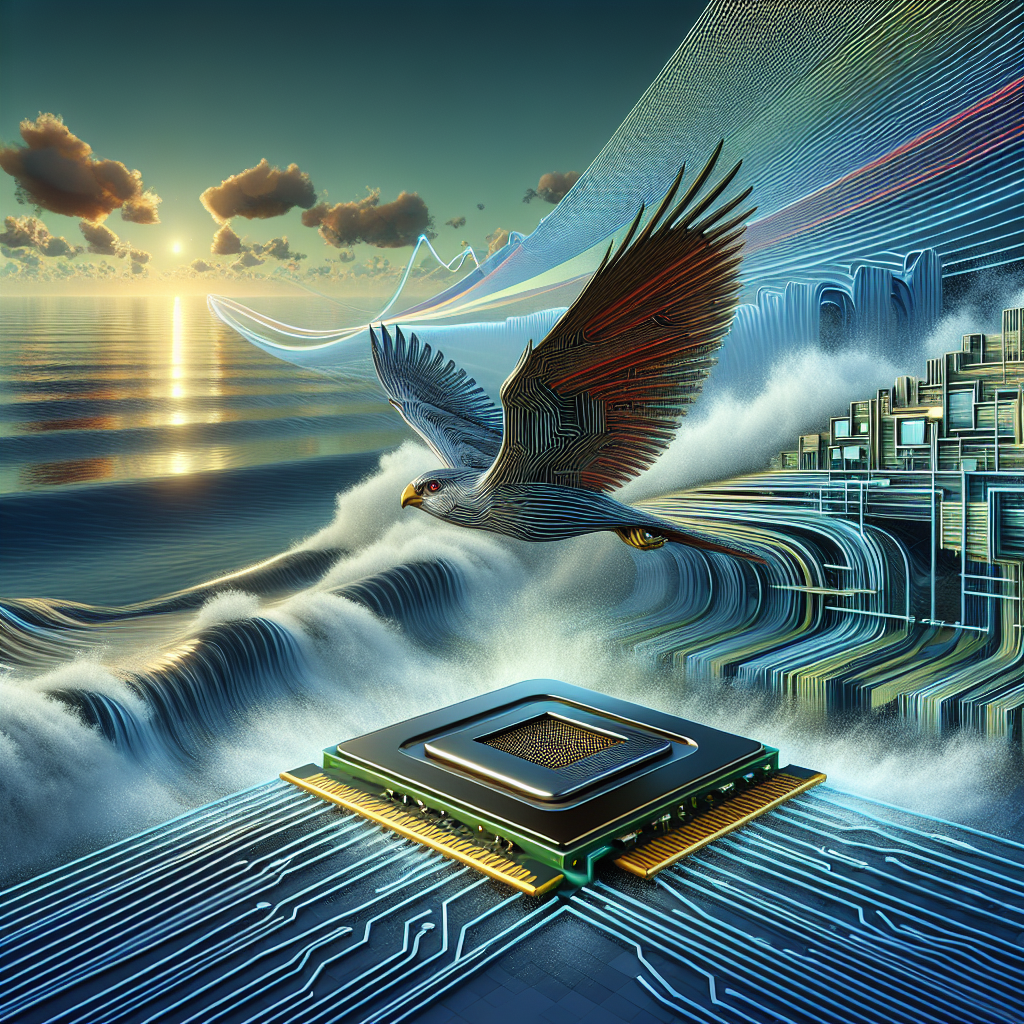Intel’s Shift to AI: Navigating Challenges with Hope and Resilience
In a strategic pivot, Intel has announced the discontinuation of its Xe-HPC GPU accelerators in favor of the Gaudi platform, despite experiencing significant shortfalls in its sales goals with the Gaudi 3 AI accelerator. As the tech giant reorients its focus, it is placing its hopes on the next-generation Falcon Shores GPU platform, which promises enhanced capabilities but also presents its own set of hurdles.
During the Barclays 22nd Annual Global Technology Conference, interim co-CEO Michelle Johnston Holthaus candidly acknowledged that Falcon Shores would not be an immediate breakthrough. "Is it going to be wonderful? No, but it is a good first step in getting the platform done," she stated, emphasizing the need for rapid iterations to create a competitive product. This sentiment sheds light on a critical aspect of perseverance in the face of difficulties—an idea echoed in many biblical teachings about resilience.
Intel’s candid acknowledgment of the shortcomings in the Gaudi platform highlights the complexities of developing new technologies. While it was designed to facilitate large-scale training, it has become suitable primarily for smaller, edge-based deployments. "Gaudi does not allow me to get to the masses; it is not a GPU that is easily deployed in systems around the globe," Holthaus explained, pointing to the necessity for refinement and adaptation.
Intel’s journey reflects the biblical principle found in Proverbs 24:16: “For though the righteous fall seven times, they rise again, but the wicked stumble when calamity strikes.” This verse encourages us to understand that setbacks and challenges are part of the journey. Companies—and individuals—may face failures, but the true measure lies in the ability to rise, learn, and adapt for future challenges.
Looking ahead, Falcon Shores is anticipated to bring considerable advancements through its multi-chiplet design, integrating both Xe-HPC and x86 architectures with unified memory. With these innovations, Intel hopes to achieve a leap in performance and capacity, marking a significant step in its quest to regain prominence in the competitive AI market.
Furthermore, as Intel aims for a brighter future with plans for the Jaguar Shores platform, it signifies continuous learning and listening to the market’s needs. This iterative process resonates with the principle of lifelong learning taught by Jesus, encouraging us to grow and evolve through trials. "Ask, and it will be given to you; seek, and you will find; knock, and it will be opened to you" (Matthew 7:7). This pursuit speaks to the importance of perseverance, persistence, and seeking excellence.
As Intel navigates these challenges, it serves as a reminder that setbacks are not the end but rather a part of growth and evolution. The road forward may be steep, yet each step taken fosters development and understanding. Let us embrace the journey ahead with hope, knowing that no amount of adversity can diminish the promise of renewal.
So, as you reflect on this journey of resilience, consider this: in what areas of your life might you need to iterate and grow? Just as a tech company learns from its setbacks, we too have opportunities to learn from ours.
Explore and dig up answers yourself with our BGodInspired Bible Tools! Be careful – each interaction is like a new treasure hunt… you can get lost for hours 🙂


